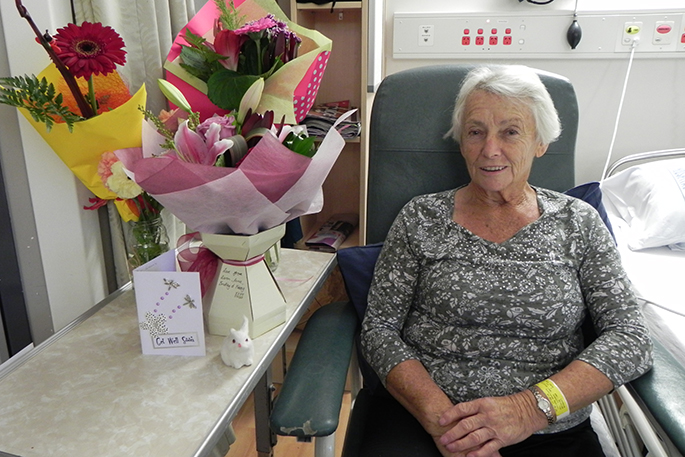A month-long campaign is focussing on the leading cause of injury and incapacitation to the elderly.
The national April Falls campaign -Stand up to falls- is highlighting the damage that falls do and how people can reduce the likelihood of suffering one.
Falls cause serious harm, with the most common injury being a hip fracture. Of those who suffer a hip fracture nearly 20 per cent will die within a year; almost half will require long-term care, and half will require help with daily living.
Tauranga resident, and former Healthcare Assistant, Glennis Sowry suffered a fall recently and wants to raise awareness of the issue for elderly people.
'I worked at Tauranga Hospital for around 15 years so I saw first-hand how harmful falls can be,” says Glennis.
'During that time I cared for many people who suffered falls.”
For Glennis, now in her 70s, this is her first falls-related injury - fracturing her femur - but she says she will be out tramping and ballroom dancing again as soon as possible.
'I like to keep active, going to the gym, tramping, playing croquet and ballroom dancing.
'It's important to exercise because otherwise older people don't walk so smoothly or easily which can lead to falls.”
Over half of all falls experienced by older people occur at home. Falls are the main reason older people lose their independence and confidence, which in turn can increase the likelihood of falling again.
Many falls can be prevented by addressing underlying health conditions or problems with strength, balance or mobility. The advice for those concerned about falls is not to wait until you have a fall; talk to your doctor, nurse or pharmacist today about ways to minimise your risk.
For more information visit: http://www.hqsc.govt.nz/our-programmes/reducing-harm-from-falls/april-falls/april-falls-2017/
Factbox 1: Four things you can do to prevent falls
- Improve your balance and strength – ask your doctor or nurse to recommend a programme or exercises that are right for you.
- Ask your doctor, nurse or pharmacist to review your medicines.
- Get annual eye check-ups and update your glasses.
- Make your home safer by:
- Removing clutter and tripping hazards, including mats and rugs
- Putting railings on stairs and adding grab bars in the bathroom and toilet
- Having good lighting, especially on stairs
Factbox 2: Falls – the facts and figures
This year, one-in-three people over 65 and one-in-two over 80 will have a fall.
The most serious injuries resulting from falls are fractures and head injuries, with hip fractures being the most common.
Of those who suffer a hip fracture:
- nearly 20 per cent will die within a year
- almost half will require long-term care
- half will require help with daily living
Half of those who walked without help before fracturing a hip are no longer able to walk independently in the year following the fracture.
The estimated cost of hip fracture resulting in a three-week stay in hospital is $47,000. The estimated cost of a hip fracture with complications requiring admission to an aged care facility is $135,000.



0 comments
Leave a Comment
You must be logged in to make a comment.